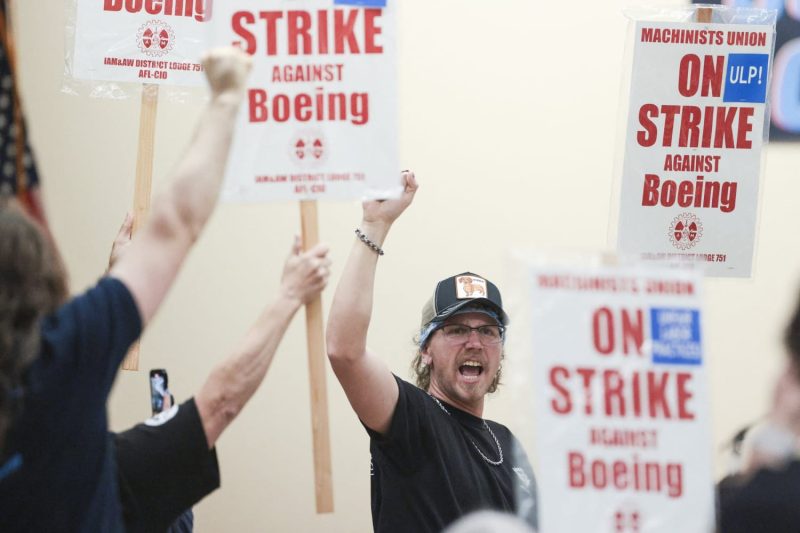The recent strike by Boeing factory workers following the overwhelming rejection of a proposed contract has sparked discussions about the challenges faced by workers in negotiating fair labor agreements. The strike, which affected several Boeing facilities, pointed to the concerns raised by employees regarding wages, benefits, and working conditions.
One of the primary reasons for the rejection of the proposed contract was the lack of significant wage increases. Workers expressed frustration over stagnant wages that failed to keep up with the rising cost of living. Many employees argued that their hard work and dedication to the company should be met with fair compensation that reflects their contributions.
Another contentious issue was the proposed changes to employee benefits. Workers were concerned about potential cuts to healthcare coverage and retirement benefits, which are essential aspects of their overall compensation package. The rejection of the contract was driven, in part, by the desire to protect these critical benefits that support workers and their families.
Additionally, working conditions emerged as a key point of contention during negotiations. Employees raised concerns about workplace safety, job security, and the overall quality of their working environment. The rejection of the contract signaled a clear demand for improvements in these areas to ensure that workers are valued and protected while on the job.
The strike itself was a powerful display of solidarity among Boeing workers who stood together to advocate for their rights and demand a fair agreement. The decision to reject the proposed contract and take industrial action underscored the determination of employees to secure better terms and conditions that reflect their worth and dedication to the company.
In response to the strike, Boeing management will need to engage in meaningful dialogue with workers to address their grievances and find mutually beneficial solutions. It is essential for both sides to work collaboratively to reach an agreement that prioritizes the well-being of employees while also considering the long-term sustainability of the company.
Moving forward, the strike serves as a reminder of the importance of fair labor practices and the need to prioritize the interests of workers in contract negotiations. By listening to the concerns of employees, acknowledging their contributions, and valuing their efforts, companies can cultivate a positive work environment that fosters mutual respect and collaboration.
Ultimately, the Boeing factory workers’ strike highlights the ongoing challenges faced by workers in advocating for fair treatment and just compensation. It underscores the significance of collective action in holding companies accountable and striving for equitable labor agreements that benefit both employees and employers.
